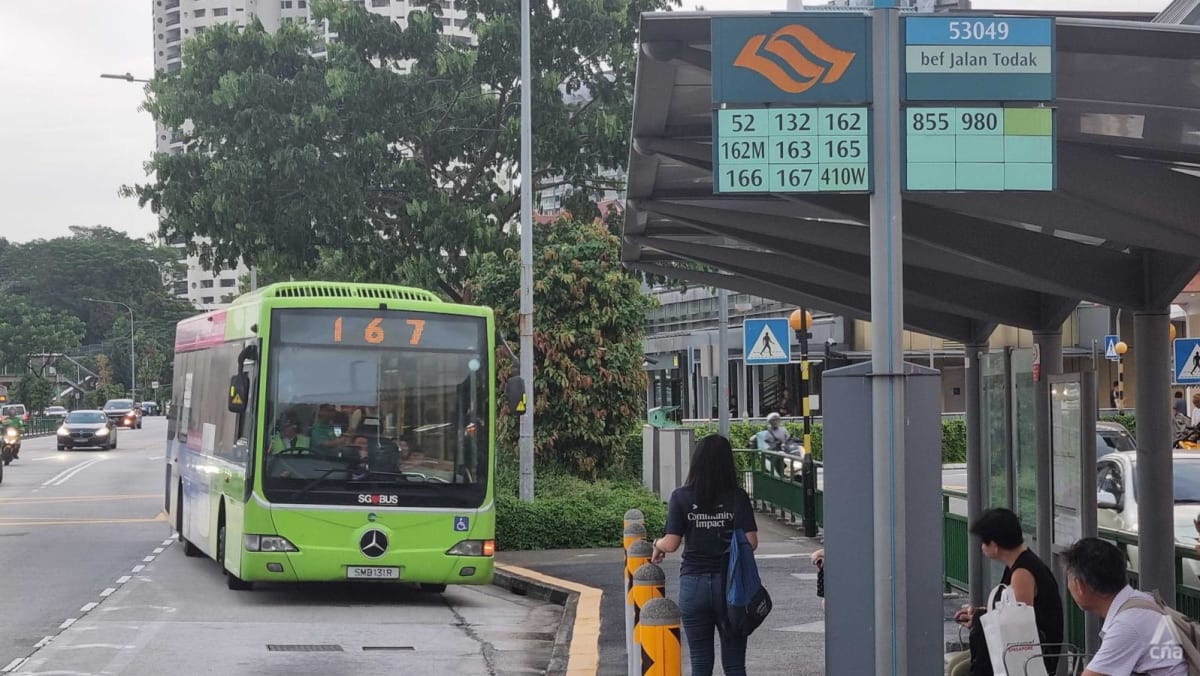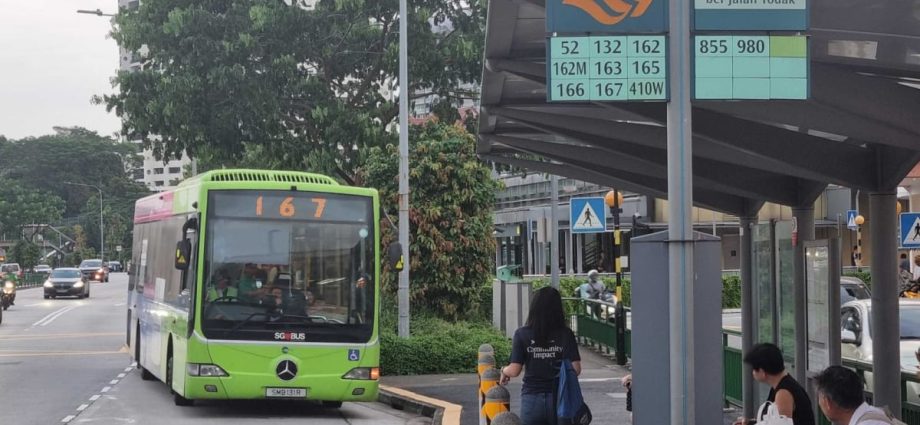
SINGAPORE: Any decision to remove public bus services may upset commuters but it is inevitable that Singapore would have to adjust bus routes with the expansion of the country’s train network, transport experts said on Wednesday (Nov 29), citing the need to manage costs.
The Land Transport Authority (LTA) announced on Nov 17 that it would discontinue bus service 167 given falling ridership, sparking criticism from some commuters. However, just days after the announcement, the authority reversed its decision and said bus service 167 would operate at 30-minute intervals for the time being, from Dec 17.
“I think it’s inevitable that bus services will continue to need to be rationalised given expansion to the MRT system,” said Associate Professor Walter Theseira of the Singapore University of Social Sciences (SUSS).
“The point of building the MRT network is to provide a much higher capacity, higher quality of transport services, than can be provided by bus services. That is why the MRT network is being expanded rather than just buying more buses, even though the MRT is substantially more expensive,” he added.
“Thus, if there is a strong degree of substitution between the MRT network and a given bus service, that bus service should be considered for adjustment.”
LTA said earlier this month that demand for “long trunk services” such as bus 167, along with service 162/M and 75, had fallen 30 per cent to 40 per cent along the sectors that run parallel to the Thomson-East Coast Line.
Given the low ridership for these bus services, it would be inefficient for the transport authority to pay operators to run these routes, experts said.
“The challenge is entirely on public finances,” Assoc Prof Theseira explained.
“When a service is run with too few passengers, the difference between LTA’s operations fees and the fares received is larger, and the taxpayer has to pay more to support public transport.”
Singapore’s public transport network “currently has a high incidence of routes that overlap and duplicate for some distance”, noted Adjunct Associate Professor Paul Barter of the Lee Kuan Yew School of Public Policy (LKYSPP).
“This inefficiency makes it difficult to offer frequent service at reasonable cost,” he added.
Associate Professor Raymond Ong of the Department of Civil and Environmental Engineering at the National University of Singapore (NUS) also told CNA that expects more bus services to be adjusted in future.
“We should not have routes that are competing with each other for the same demand,” said Dr Ong.

